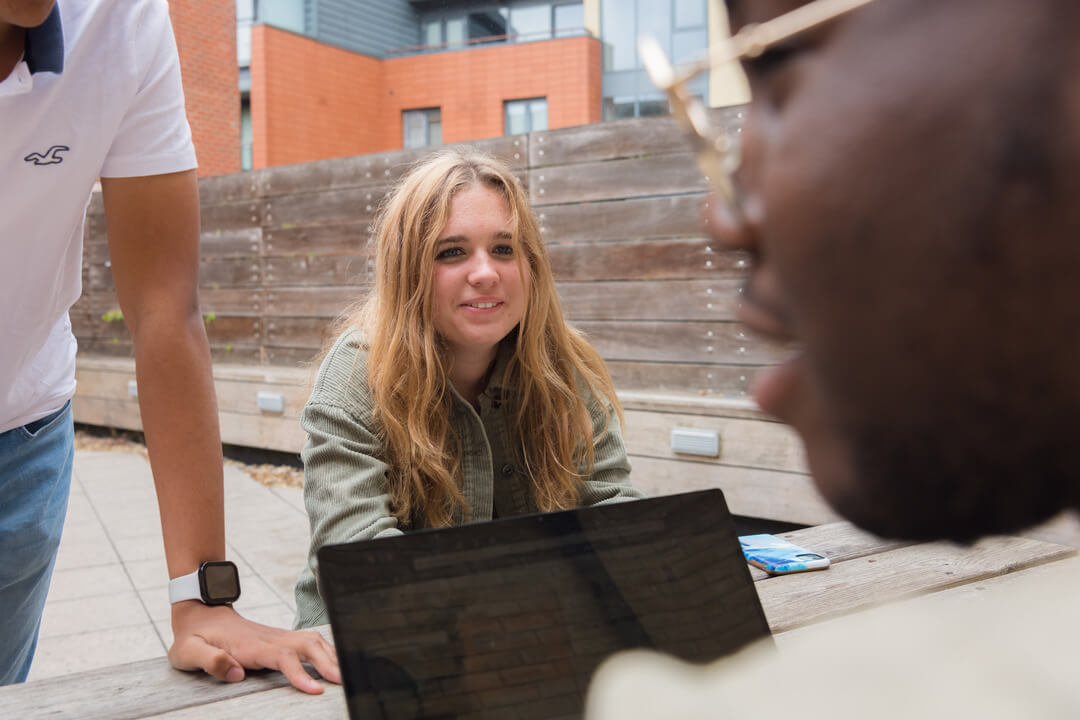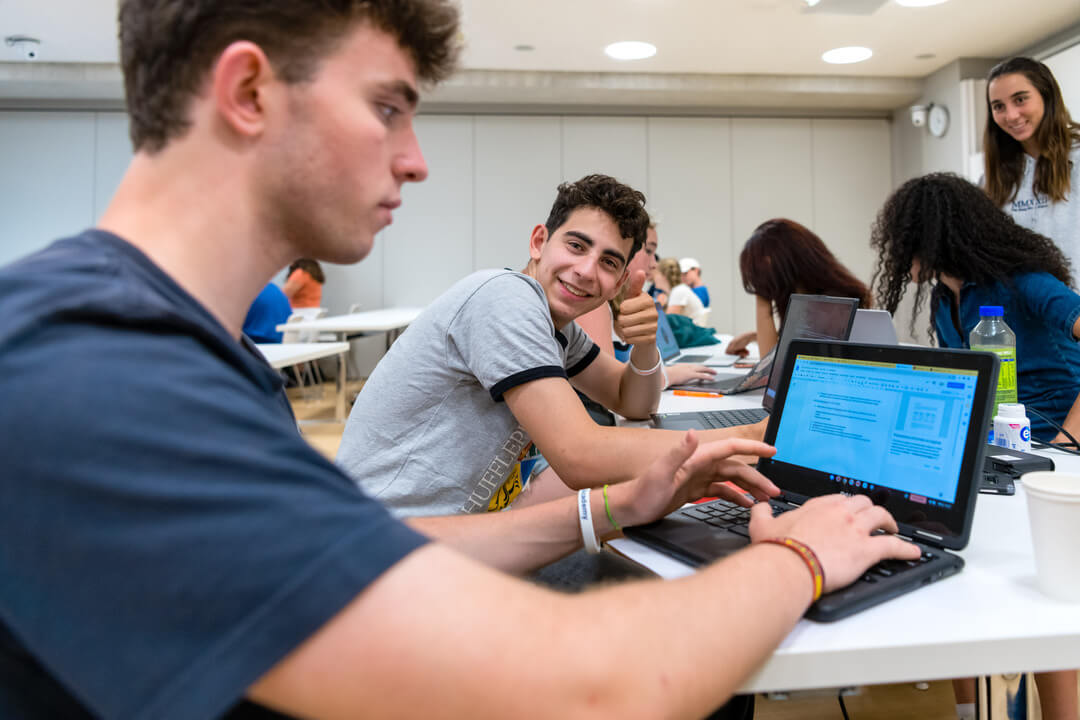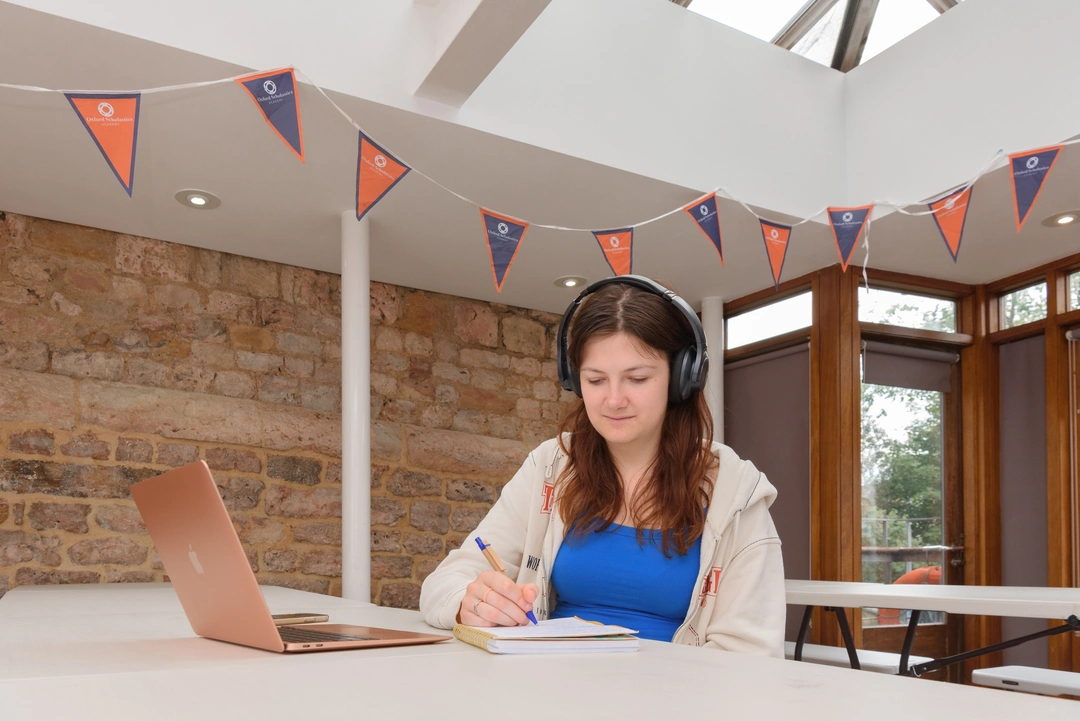Whether you’re considering attending our online summer school, or just wondering how to best manage your time and study productively, using apps can help boost motivation, direct focus and achieve academic success.
It may seem contradictory to encourage you to spend more time on a phone or tablet, but research has found that meaningful planning and preparation before a study session can improve results dramatically – you’ve heard it before: “failing to prepare is preparing to fail”.
That’s why we’ve come up with a step-by-step guide to help you make the best use of your study time, while making sure you don’t get distracted by tempting social media notifications!
Step 1: Plan and Manage your Time
This first step is essential as it lays the foundations for everything else in your working day. It is recommended that you set goals for yourself to work towards each day, week and/or month.
Blocking out these overarching goals into realistic and manageable chunks will help you visualise your time and work on different tasks without getting overwhelmed. This means it’s very important to use a calendar, timetable, planner or reminders. You might prefer to use a paper diary for this, but there are also great apps available that allow you to organise your time and set notifications for different tasks.
Either way, organising your schedule in advance gives you one less thing to worry about while you’re studying. At the start of your working week, take half an hour to consider what you’d like to achieve. Here are some tips:
1. Start by inputting all of your known classes, meetings, commitments and planned activities – note the exact time, where it occurs, who it’s with and what it’s about
2. If you’re using an app, set reminders in advance for these events to make sure you have time to prepare
3. Note down your goals for the week – they can be academic, physical, mental, etc.
4. Timetable your work around meeting these goals – think about what you physically need to do in order to achieve them
5. Schedule in time for breaks and be realistic when timetabling
6. Be flexible and allow yourself to move things around when you need to
7. Reflect on your schedule at the end of the week – what did you achieve, and what could be better next week?
It is best if you limit the number of apps used to plan to one or two, so that you have everything in one place. Experiment to find the ones that work best for you.
Step 2: Create a Suitable Study Environment
Productivity and focus apps can help create a comfortable environment to keep you motivated. Some apps play calming music or background noises (e.g. rain sounds, white noise), and some don’t let you exit the app until you’ve completed your study session, both of which can limit distractions.
These types of apps have incentives to keep you there; for example Forest has a game-like feature where you grow trees and plants each time you complete a session, and when you’ve grown enough virtual plants you can actually plant a real tree!

Step 3: Write and Take Notes
This is what it all comes down to. Apps can only help so much; the actual studying you get done while you’re being productive is what will really make you successful.
That said, it is helpful if your notes are neat, accessible and easy to learn from. Note-taking apps like Notability can help you to optimise your study notes and pave the way for your future success. If you prefer to make hand-written notes, certain apps will support electronic pens and even convert your writing into a printed font when you’re finished.
Digital notes have the bonus of combining a mixture of screenshots, camera images, audio clippings, videos, diagrams or personal drawings with textual information on a page. You can convert them to most file types, meaning you can keep a copy with you at all times on laptops, tablets or phones.
Step 4: Memorise and Familiarise
Flashcards are a brilliant way to familiarise yourself with new content – especially if you’ve created the questions and answers yourself – in a way that is easily understandable and digestible to you.
There are specific apps that you can tailor to your own needs, and they’re a lot less daunting. Many of these are not subject-specific, meaning you customise quizzes for all of your subjects on one platform.
Taking ten minutes in the morning and ten minutes at night to quiz yourself on a specific module can help information stay fresh in your mind without seeming too big a task.
Step 5: Organise and File Your Work
While apps like Notability allow you to have access to your digital work at all times, we know some of you will prefer to write your notes on real paper. If that’s you, there are apps that scan your notes and store them in a filing system on your phone or tablet.
Certain notebooks, such as the Oxford Campus collection, support apps like Scribzee, which uses your device’s camera to scan the notebook page and then allows you to organise them into folders within the app. It is important to organise, file and have access to all your work, whether it be digital or physical.

Step 6: Consolidate Your Hard Work
It’s equally as important to relax and reflect as it is to plan and study. It can be more effective to allow yourself space to consider what went well and what didn’t, than to continue endlessly with unsuccessful study methods. When it comes to academic reflection, there are options like video apps that allow you to record what you’ve learned that day. Watching your videos in the morning may refresh your memory and remind you where you left off.
Emotional reflection is equally as important to preserve a good relationship with studying in the long-run. It is good practice to get in the habit of monitoring your mental health and its changes. You could consider downloading a diary or journaling app to record how you’re feeling, as this could make it easier to notice when you become overwhelmed or need to take a break.





